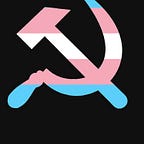Importance of the Labor Front
Labor unions have won a historic victory. At least this is what the liberal news media has told us. Twenty Starbucks locations have unionized in the past few weeks, and the first Amazon warehouse was unionized in New York previously. The organization of workers has certainly increased of late. This was inevitable given the scarcity of workers during and after the pandemic lockdowns, where companies either terminated or furloughed large numbers of their employees.
But we have a problem now. Do these unions represent a vehicle for change? It is very unlikely. While the recent efforts to unionize have emphasized the need for workers to take action against their employers, it seems that demands have stopped short of calls for systemic change.
Do I mean that these labor unions cannot be radical? No. Any union has the power to influence all segments of society; the question is whether they will exercise this power. Not only have labor unions refused to exercise this power, they have also been banned from doing so. General strikes are illegal. Strikes in certain industries are illegal. Union membership has been largely reduced to a formality with few members actually engaging in grassroots activism, rather than a support structure dependent on collective action. Does this mean that labor has been stripped of all its usefulness? No.
Since the 1970s and 1980s, labor unions have withdrawn from the communities they rely on for support. This means strikes have little public support. In other words, unions have strayed from their socialist roots, where leaders arose from the employees they actually represent. I am not arguing for a return to the past of labor organizing. Labor has historically reacted harshly to other forms of liberation, especially the colonial struggle against New Afrikan people. Labor must be a total movement that sponsors radical change of the entire society, not only the relation between the workers and employers.
The Labor Front has failed to address the very problems it was set forth to remedy. Work weeks in many factories remain over 50 hours, despite the hundred-year-long fight for a forty hour week. Shift times have routinely remained over 10-hours, often at 12-hours in rural despite a similarly long struggle for an eight-hour day. Warehouse jobs routinely require mandatory overtime, particularly in the case of Amazon. In other industries, workers are increasingly hired as part-time employees to reduce company costs by absolving them from providing health insurance. Rates of injury have remained high in many industries, especially in manufacturing, warehouse work, and similar manual labor positions.
At the same time, unions have refused to go on strike to promote their workers’ political needs, to force companies into compliance with typical worker demands. Unions are tools for a particular group. They are not radical in themselves, but are a weapon often employed by radical politics. Recently, they have been extremely conservative, unwilling to use their tools to force employers’ hands.
Why do I bring up unions, then? They are conservative, they have been stripped of their powers, and they have cut themselves off from the communities they represent. We realize that all reactionary tendencies are changeable. To deny this would mean to deny that change is possible at all. I have found in my own experience that workers are not opposed to unions, but support them as a tool in the struggle for survival. I have continually investigated the situations of my coworkers, and helped where I could. Although my experiences are with primarily white workers, I believe that the colonized would support these tools to struggle with their employers as well. Their struggle is often more dire, and hence they are more likely to use any tools available.
Communists must involve themselves in the Labor Front. Although, as the MCP-OC and other Maoists have maintained, the primary class contradiction in the United States is between the colonized and colonizers, the labor front is a part of this struggle. In the areas where I have organized, the Latinx and New Afrikan people were those employed in the harshest and most exploitable positions. White proletarians primarily work in the service industry (retail, customer service, etc.), which has a lesser rate of injury and overall better working conditions.
Unions must alleviate all workplace abuses, whether capitalist, colonial, or patriarchic. All communist worker organizations have the primary task of reducing alienation and building solidarity as a tool to fight all economic abuses, regardless of the classes involved. In other words, they must be configured to address not only the interests of colonizers struggling against capitalist oppression, but also those of the colonized fighting against both colonial and capitalist oppression.
The only way to form unions in accordance with these goals is for communists to involve themselves with labor on an intimate level, just as they involve themselves in the colonial struggle against white supremacy and the feudal struggle against landlords. These are the three primary class conflicts within the United States, and to combat one of them means to combat all of them at the same time. If organizing in one field fails to address the others, it will fail to address the contradiction that drove to organizing in the first place.
